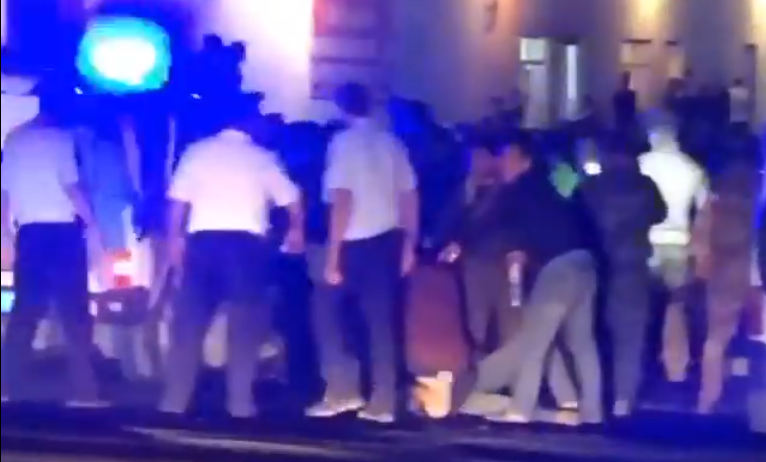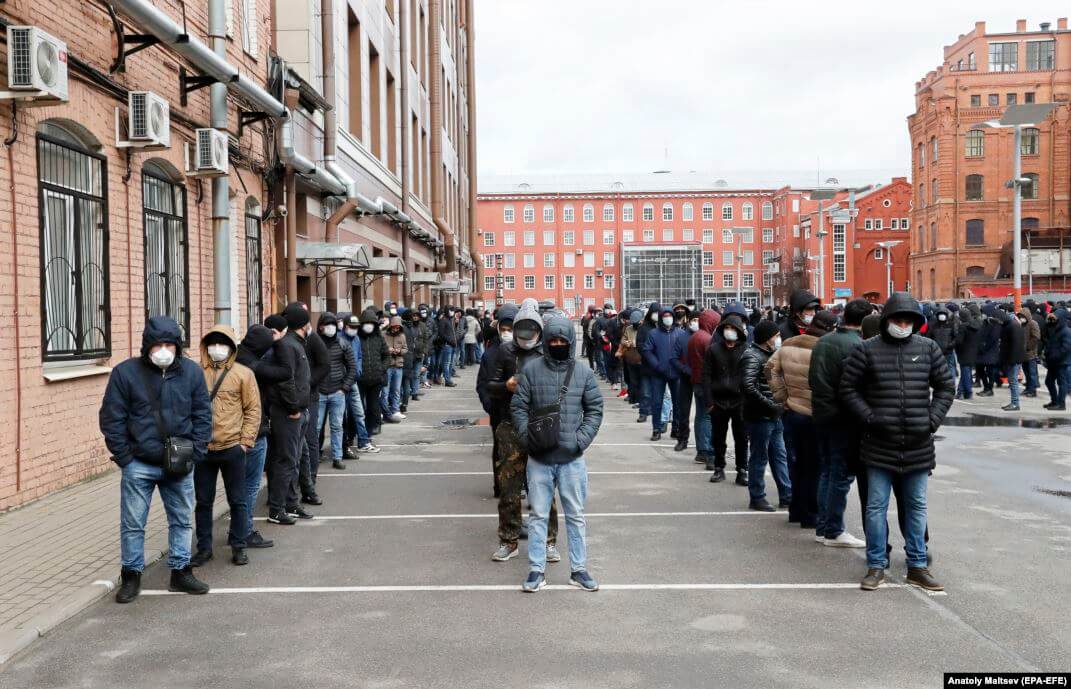Hundreds of Azerbaijani labour migrants in Russia who have been rendered unemployed due to the coronavirus pandemic and stranded in the country have been gathering at airports and the land border between the two states in a bid to return home. Over frustrations about Baku’s abysmally low repatriation rate, almost 600 labourers staged a massive protest at the border on 15 June.
The Dagestan border has been closed since 18 March, and migrants have set up tents there and in the Derbentskiy region’s Kullar village as temporary shelters. Matters escalated on 15 June when the migrants were told that Dagestan crossing would be opened for a select few names from the 600 people gathered at the border at the time. People were reportedly furious that the list had fewer than half the number of people who were at the border, sparking a protest in Kullar. The Russian police used tear gas and fired guns into the air, injuring around 50 protesters and detaining 93.

Previously on 3 June, around 60 people living at the unofficial camps in Kullar had staged a hunger strike, demanding that they be allowed back home, accusing their home government of indifference.
The Azerbaijani Ministry of Foreign Affairs spokesperson Leyla Abdullayva repeated an April statement from the government, warning citizens of the health risks of gathering at the borders. Till now, Baku has reported that it has repatriated 6,500 workers from Russia and plans continue the process in a staggered manner, bringing back 200-400 people per week due to a lack of quarantine facilities back home until the borders reopen and flights are resumed.
These hardships are not unique only to Azerbaijani migrants—several Tajik, Uzbek, and Kyrgyz workers share the same plight. For example, prior to the lockdown, there were more than 15 daily flights between Moscow and various Uzbek cities. Today, only two charters leave each week, with the embassy’s waiting list for repatriation crossing 80,000 names.
See also: Tajikistan Makes No Attempts to Repatriate 500,000+ Nationals Stuck in Russia
Since the beginning of the lockdown, thousands of migrant workers from all over Central Asia have been stranded in Russia due to slow action from their home governments towards repatriation processes.
In Moscow, the lockdown has deprived a staggering 76% of migrant workers of their livelihoods, including both layoffs and those who were forced to take unpaid leave. Of these, around 58% lost their entire income. According to a poll by the Group for Migration and Ethnicity Research, this rate is alarmingly high compared to Russian nationals, among which 42% lost their jobs and only 23% reported a loss of all income. Many foreign workers are stuck in migration detention camps under poor conditions, awaiting repatriation.
Image Source: Radio Free Europe

